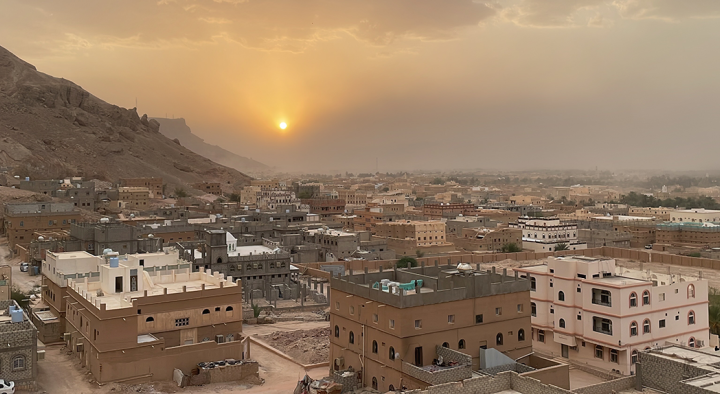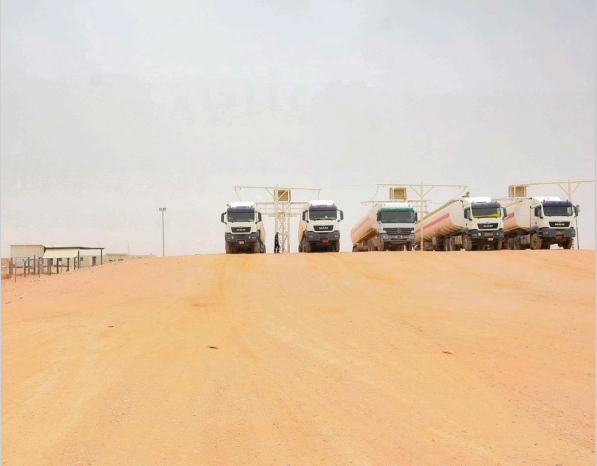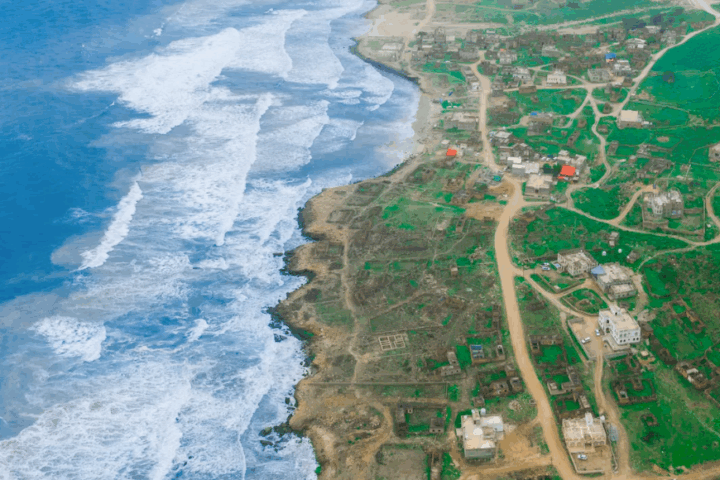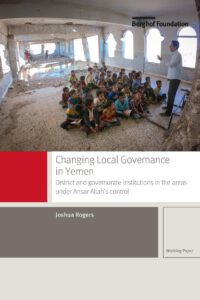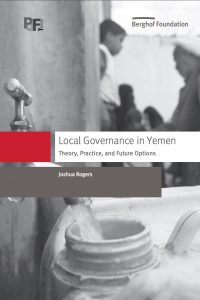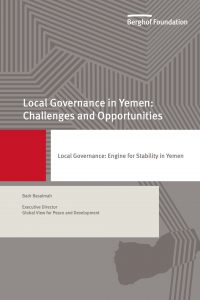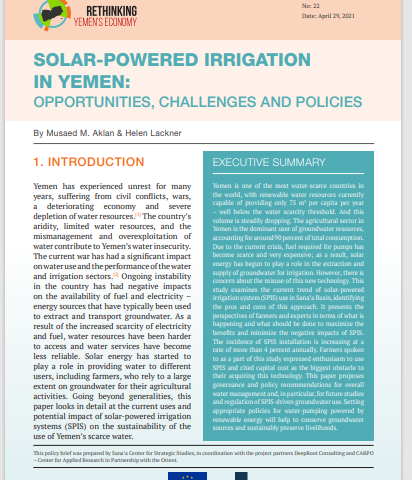
This study examines the current trend of solar-powered irrigation system (SPIS) use in Sana’a Basin, identifying the pros and cons of this approach. It presents the perspectives of farmers and experts in terms of what is happening and what should be done to maximize the benefits and minimize the negative impacts of SPIS.
Yemen is one of the most water-scarce countries in the world,with renewable water resources currently capable of providing only 75 m3 per capita per year– well below the water scarcity threshold. And this volume is steadily dropping. The agricultural sector in Yemen is the dominant user of groundwater resources,accounting for around 90 percent of total consumption.
Due to the current crisis, fuel required for pumps has become scarce and very expensive; as a result, solar energy has begun to play a role in the extraction and supply of groundwater for irrigation. However, there is concern about the misuse of this new technology. This study examines the current trend of solar-powered irrigation system (SPIS) use in Sana’a Basin, identifying
the pros and cons of this approach. It presents the perspectives of farmers and experts in terms of what is happening and what should be done to maximize the benefits and minimize the negative impacts of SPIS.The incidence of SPIS installation is increasing at a rate of more than 4 percent annually. Farmers spoken to as a part of this study expressed enthusiasm to use SPIS and cited capital cost as the biggest obstacle to their acquiring this technology.
This paper proposes governance and policy recommendations for overall water management and, in particular, for future studies and regulation of SPIS-driven groundwater use. Setting appropriate policies for water-pumping powered by renewable energy will help to conserve groundwater sources and sustainably preserve livelihoods.
Other resources you may be interested in:
The Hadhramawt National Council: A strategic move or a tactical reaction?
Discussion of the HNC’s potential to serve as an inclusive platform for Hadhrami aspirations and its challenges in establishing a clear strategic direction, while analysing whether it represents a strategic initiative or a tactical response to regional and local dynamics. The paper recenters HNC’s main role as to unify various Hadhrami movements advocating for greater […]
Recovering Lost Ground in Shabwa’s Oil Sector
Policy brief highlighting the pivotal role of the governorate of Shabwah in Yemen’s oil sector. It criticises the predominant role of international oil companies and the central government in Shabwah’s oil sector, and proposes a localisation, including the establishment of a local oil refinery, to meet local demands and to become more sensitive to developmental, […]
Extreme Weather and the Role of Early Warning Systems in Yemen: Al-Mahra as a Case Study
Policy brief on the effects of extreme wheather events in Al Mahra, exploring the perception of Mahrawis on the impact of climate change on agriculture, infrastrucure and their personal lives. Recommendations include ways for local authorities to develop an emergency response strategy in order to improve their ability to deal with (the aftermaths of) extreme […]


